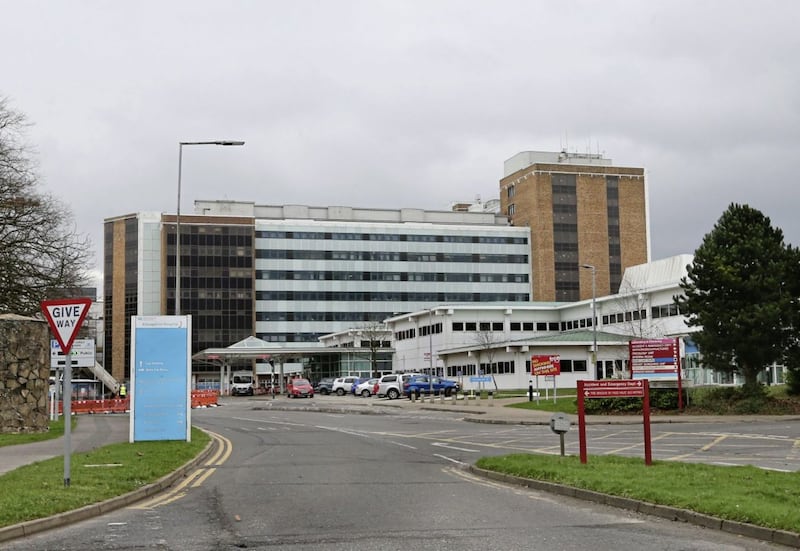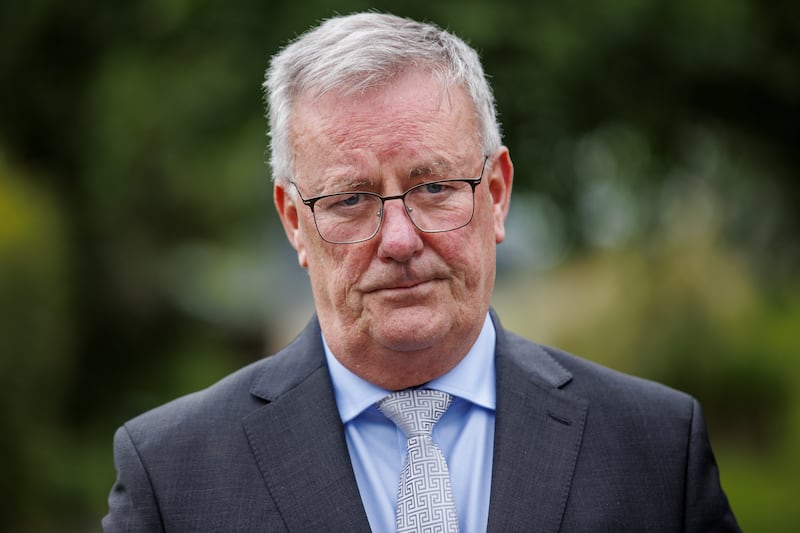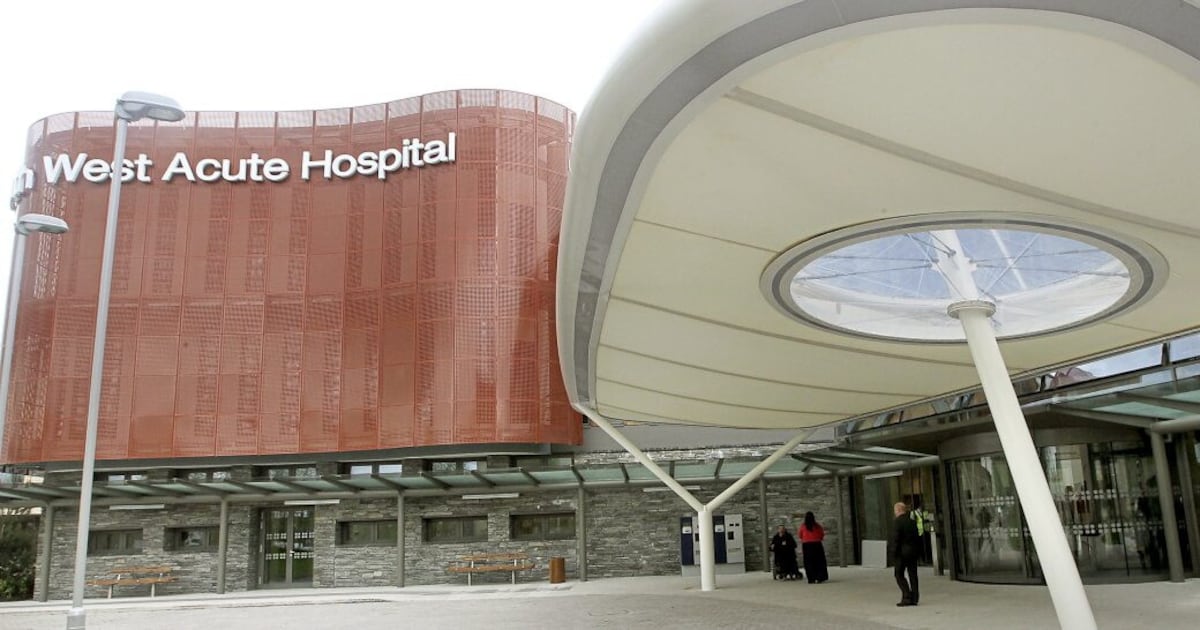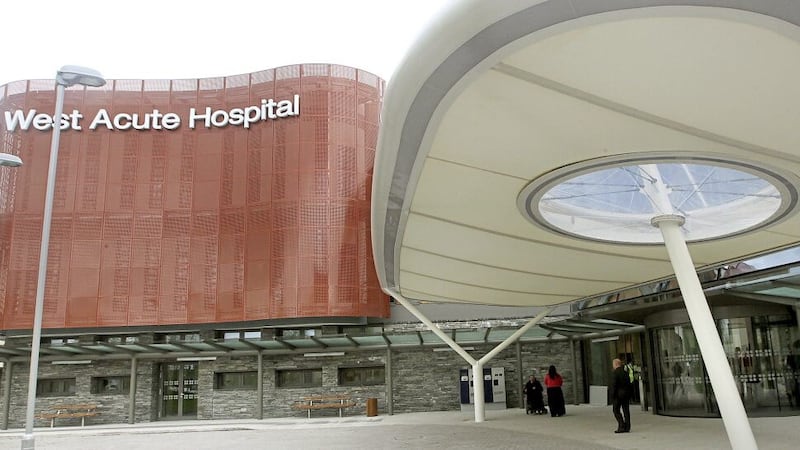It is a scandal that thanks to the ill-judged Private Finance Initiative, the South West Acute Hospital (SWAH) in Enniskillen which opened in 2012 will cost the taxpayer three times more than the building is worth.
To add insult to injury, the complete mismanagement of services in this hospital by the Western Trust has led to fundamental questions about the future status of SWAH.
Medics have repeatedly raised a string of issues around management, understaffing, an inability to recruit and retain staff, poor morale, over-reliance on expensive locum cover, under-utilisation of operating theatres, a toxic culture and a lack of certainty about the viability of the hospital.
The attempted removal of emergency general surgery (EGS) from this beleaguered SWAH could be a case study in how not to transform healthcare. From the outset, the handling of this issue has been utterly shambolic.
The ham-fisted approach taken by the Western Trust has damaged and eroded confidence in the management of health and social care. Transparency, accountability and a partnership approach are essential when dealing with these difficult, complex decisions.
On the one hand the decision to suspend EGS in December 2022 was described as ‘temporary’ and ‘unplanned’ due to an inability to recruit and retain surgical staff, whilst on the other hand it was suggested that the permanent removal of EGS was necessary to ensure better outcomes.
Predictably, in the absence of robust, reliable information, rumours took hold. These included that this was the beginning of the end for the Enniskillen hospital, that other services were under threat.
The public were understandably angry and dismayed at their legitimate concerns being dismissed or ignored. In an information vacuum and dealing with an unresponsive system, many were convinced that this was the thin end of the wedge.
Earlier this month at a Trust board meeting, a consultation on the permanent transfer of EGS to Derry was agreed. Given the strength of feeling that was already evident on this highly emotive issue, unbelievably just two face-to-face public consultation events were organised.
 Altnagelvin Hospital in Derry. Picture: Margaret McLaughlin
Altnagelvin Hospital in Derry. Picture: Margaret McLaughlin
Confronted with overwhelming demand to attend these meetings, the Trust decided to postpone these events “in the interest of public safety”.
In a highly unusual move, the Patient and Client Council (PCC), a body which represents the interests of the public in the health and social care system, raised concerns about the consultation process.
In a letter sent to the campaign group Save Our Acute Services (SOAS) earlier in July, it said it was “disappointed with how PCC’s early conversation with the trust has been reflected in response to concerns about the consultation, including in the media”.
In the latest tumultuous week for SWAH, the health minister Mike Nesbitt intervened, asking the Trust to pause the proposed consultation.
While the management of this process is the responsibility of the Trust, any permanent change to EGS must be signed off by the minister.
From the outset, it is hard to imagine how such a sensitive, emotive issue could have been handled any worse.
The years of dithering and mixed messaging have made a bad situation immeasurably worse.
Much of the current fear and alarm could have been avoided by management of the Trust working collaboratively with all stakeholders, levelling with the public. Outlining clearly what this means for the hospital and equally important what it does not mean.
Where is the evidence-based plan setting out in detail the future of acute services in this Trust area and specifically the services delivered in this hospital?
What is impact of proposed changes on Altnagelvin? Is there a plan to develop a regional specialised elective surgical centre? If so, what service and when?
What will the removal of this EGS mean for other services? How does the Trust intend to address on-going problems with the recruitment and retention of staff?
 Health Minister Mike Nesbitt (Liam McBurney/PA)
Health Minister Mike Nesbitt (Liam McBurney/PA)
Those charged with overseeing this fiasco are hugely misguided and deluded if they cannot acknowledge that this has been disastrous. Even at this stage management appear to be surprised at the strength of feeling generated by this issue.
The days of being grateful for a paternalist healthcare system managed by those who know what’s best for us are over.
Patients are not passive recipients of care. They rightly expect to be fully informed and involved in decisions about current and future healthcare.
Those charged with delivering transformation in healthcare need to understand public involvement as an intrinsic part of change, rather than as a communications issue that must be dealt with.
Most people accept that not everything can be done in every hospital, but more than two decades after discussions about transformation began, we are none the wiser about what will happen where, why and how.
When are we going to have this much needed national conversation?
If you have an opinion on the issues raised in this article and would like to submit a Letter to the Editor to be considered for publication, please click hereLetters to the Editor are invited on any subject. They should be authenticated with a full name, address and a daytime telephone number. Pen names are not allowed.



